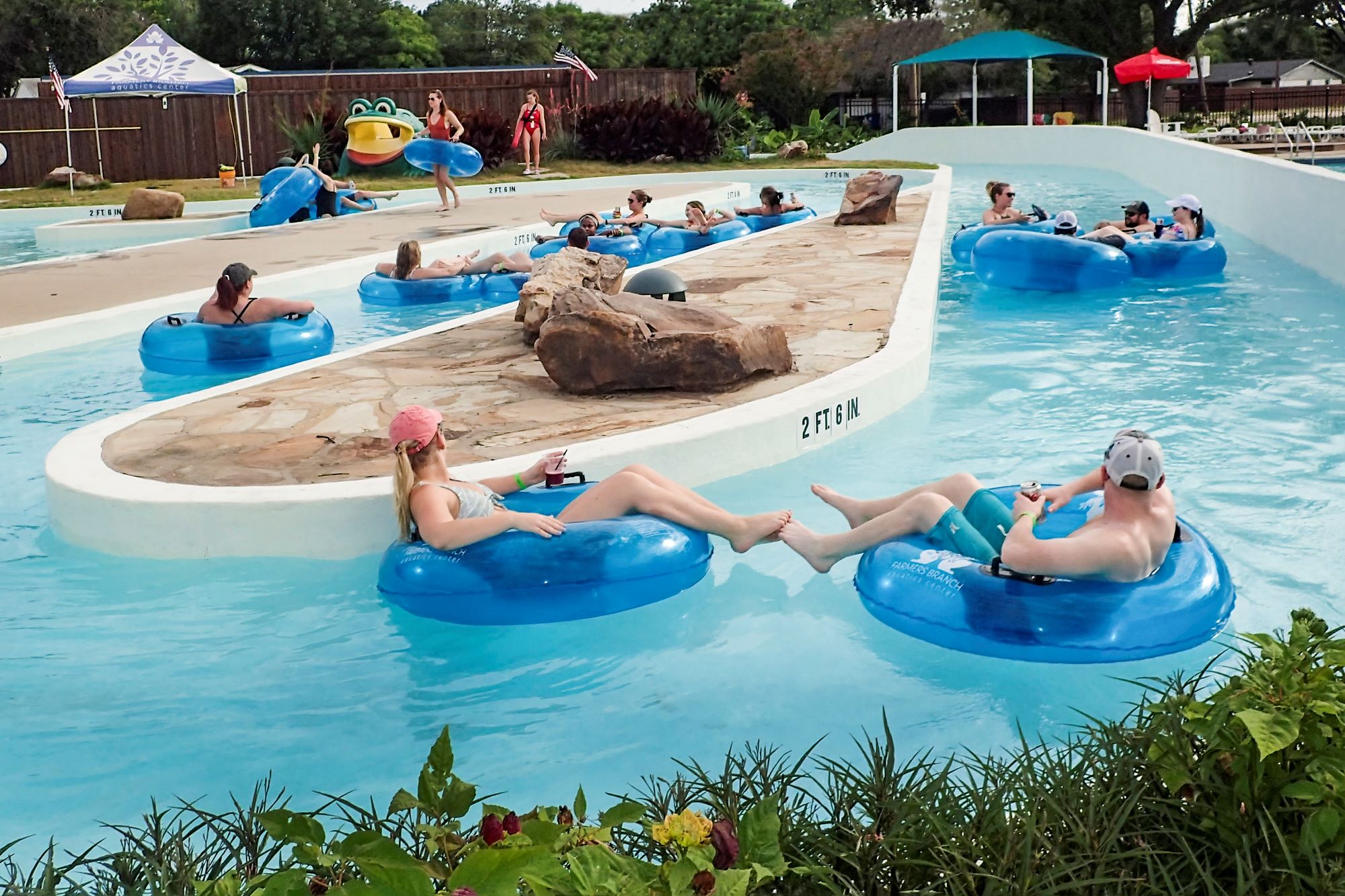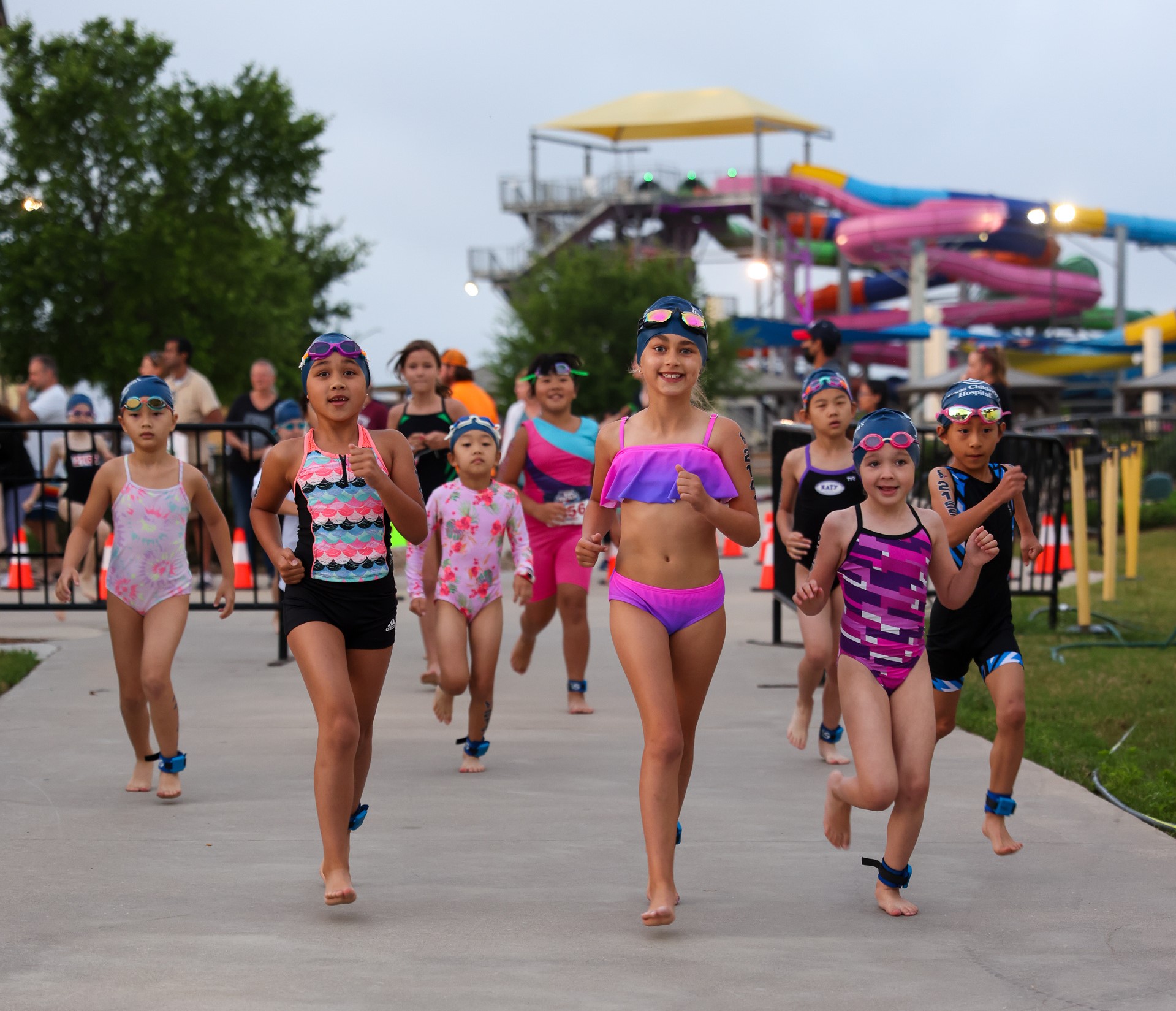Always in the search for ways to increase engagement and revenue, waterparks of all stripes are getting creative about adding special events to their schedules.
It could be as simple as a doggie day to cap off the season, with parks allowing the pets to take a dive for a single day, as a way to make use of the pool one more time before closing for the season. It could be the introduction of happy hours and alcohol to the premises. Or it could be a community-building affair such as a festival celebrating local history and culture, or a sporting competition like a triathlon.
Generally speaking, they tend to fall into two categories, says David Sangree, president of Cleveland-based Hotel & Leisure Advisors. “There are … those that you can do at night during the season, where people are willing to work extra hours,” he says. “But then you have a whole off season where this piece of real estate [may be] sitting empty.”
Whichever way you’re steering, these aquatics veterans offer advice on making them as successful as possible.
Be realistic about your staff capabilities
A few years ago, Typhoon Texas decided to bring in some off-season business by using its parking lot for a Christmas light display. The first year, they did everything themselves, and it was successful. But the following year, Hurricane Harvey barrelled through and consumed all the gear — and work — that had gone into the light show.

City of Farmers Branch
“We just didn’t have the heart or patience to start again,” says Evan Barnett, president of Houston-based Pyek Group (pronounced like peak), which manages Typhoon Texas and two Las Vegas waterparks.
As disheartening as that outcome was, it gave management a chance to really look at how the light show had been going. While it had been a success in terms of quality and revenue, Barnett says, it didn’t necessarily serve the big picture. “We were killing our team,” he says. “We were working them like dogs in the summer, then in winter. By the time the next season rolled round, they were done.”
A light show still takes place every year on the property, now it’s managed by an outside company, which leases the parking lot. “We leverage our asset but also keep our team intact,” Barnett says.
Think about the long term
Pyek’s three waterparks lease their properties for several events. The team recognized that, even though another company will run the event, their own reputation would still be directly impacted by its success or failure. “When it goes to market it’s still Typhoon Texas,” Barnett says. “So we were really cautious about partnering with somebody.”
In choosing a firm to produce the light display, they looked for a high-quality product, the same level of customer service Typhoon provides, and a willingness to sign on for multiple years.
This also meant thinking about more than the immediate revenue boost when deciding on terms. “We wanted the third party to be successful,” Barnett says. “If they were successful we’d be successful.”
They weighed three options: a straight lease, with the third party paying a predetermined amount regardless of its success; a revenue share, where Typhoon Texas received a percentage; or a combination. Management decided on the first option, with the rate increasing incrementally over five years.
“We threw out a number that was comfortable for us over the longer term, rather than nickel and diming them,” Barnett says. “It gave them an opportunity to understand their fixed cost and be really successful without us interfering in that. And we wanted to protect our team and make it more turn-key.”
Don’t forget the extras
A number of waterparks of all scales hold events such as dog days at the end of the season or host competitions such as triathlons, 5Ks and 10Ks, and even marathons for all ages. To help participants memorialize these events, while adding value and potentially boosting revenue, consider designing a tee shirt or award. These can be included in the fee and serve as an enticement, or they can be sold on the site.

Courtesy Typhoon Texas
As another extra, operate your concession stands even as another company runs the main event.
You also can expand your event by including other vendors. At dog days events in Texas, local pet-related companies and organizations are invited to set up a booth, creating something of a festival atmosphere, says Jen Kashner, assistant manager, recreation services with the City of Frisco (Texas).
Be sure to consider places for photo opportunities. For instance, the City of Farmers Branch, Texas, holds triathlons for children in the community at its waterpark, which it calls The Frog Pond. At TJ’s Tiny Triathlon, the kids swim, bike and run. They receive medals with a frog character, and a platform is set up for the gold, silver and bronze award winners.
Needless to say, their parents are proud — and want to get a photo of their little ones in action.
“Make sure you have opportunities or locations to take photos, and communicate where they can stand,” says Paul Macias, aquatics manager for the City of Farmers Branch. “One of the things we had to communicate with parents was, ‘Please do not run on the route. We know you want to get that lovely photo, but other kids are behind and we don’t want to cause a hazard.’”
Enlist the authorities
Consulting with the related local authorities and attorneys before holding your events.
For those days involving pets, consult with the health department to learn the rules of introducing pets into the space, Kashner advises. Try to arrange for Animal Control to attend the event, to mitigate any scuffles. “And always have a waiver and make sure it’s reviewed by the legal department,” Kashner adds. “You want to make sure all those boxes are checked, especially when it comes to animals and people.”
Start slow, check reactions
When the City of Farmers Branch decided to offer alcohol, it began by introducing a happy hour — which it called a Hoppy Hour, in keeping with the frog theme. Held at night, these events were adults-only, with some featuring concerts or trivia games.
Based on the response, the city decided to offer alcohol during most hours at the Frog Pond. The Farmers Branch team wanted to test it out first, so they introduced the concept slowly, mentioning it on social media and gauging for reactions. After receiving more positive feedback, the city rolled out the new offering in full, and backed it with more marketing.
Finally, consult attorneys and insurers to make sure you’re protected. “As the operator, you still have to deal with making sure people don’t slip and fall into your slide areas where there [may not be any] water now,” Sangree says. “There are definitely liability issues that have to be thought through.”



